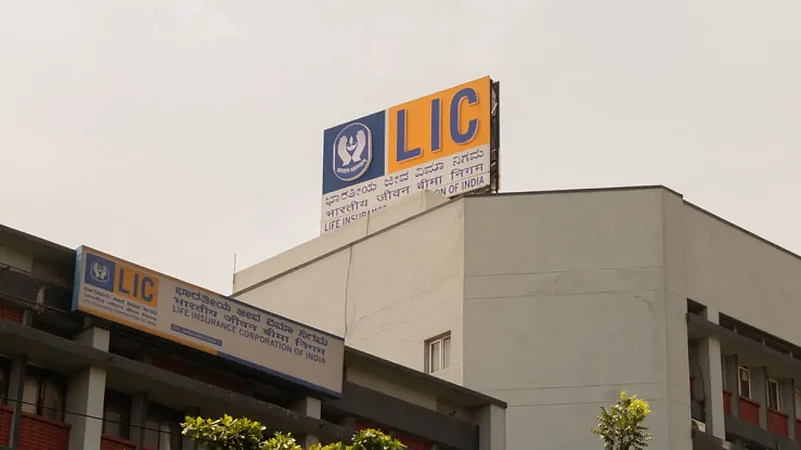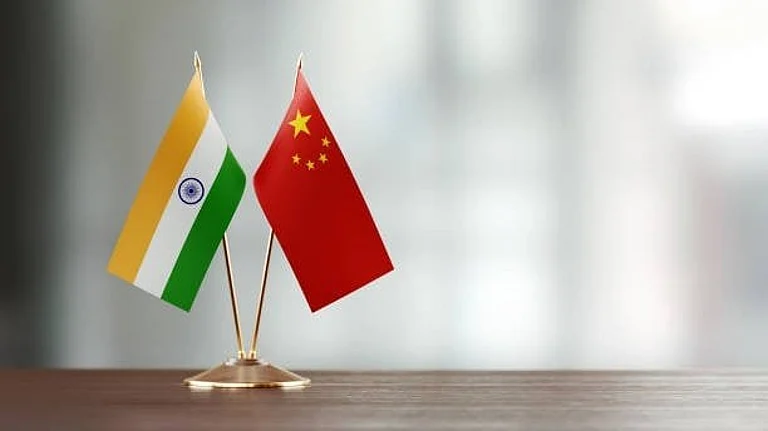The Finance Ministry will discuss with market regulator Sebi to exempt LIC from the minimum public shareholding norm, Department of Investment and Public Asset Management (DIPAM) Secretary Tuhin Kanta Pandey said on Friday.
Under the Sebi's minimum public shareholding norms, listed entities with a valuation of over one lakh crore need to have at least 25 per cent public shareholding within 5 years of listing.
The government had last year exempted public sector entities from this norm.
The government is selling over 22.13 crore shares in LIC at a price band of Rs 902-949 apiece in the initial public offering, which opens on May 4 and closes on May 9. LIC would start trading on stock exchanges on May 17.
The government expects to raise around Rs 21,000 crore from LIC IPO, which values the state-owned insurer at Rs 6 lakh crore.
Briefing reporters ahead of mega LIC IPO, Pandey said the government will not dilute its stake in Life Insurance Corporation within one year of listing.
"Going forward the roadmap for a very large player like LIC we will have to discuss with Sebi and Department of Economic Affairs for a right kind of roadmap for minimum public shareholding. We know it's not easy. Even 5 per cent at this point of time would not be acceptable to the market," Pandey said.
As per the Securities and Exchange Board of India (SEBI) norms, companies with a valuation of over Rs 1 lakh crore have to sell a minimum 5 per cent stake in IPO.
However, LIC has been exempted from this guideline.
"We had to seek special Sebi dispensation for relaxation for 3.5 per cent stake dilution. The reason for this was a very large corporate was entering the arena. We also had to be mindful of how it impacts the capital market in general. There was crowding out effect," Pandey added.
Financial Services Secretary Sanjay Malhotra said: "…norms are not there for exceptional cases like LIC. Despite a huge reduction to 3.5 per cent (from 5 per cent), it (IPO) is still the largest. Norms take care of only the normal. LIC is not normal".
Speaking at the event, Malhotra said that the embedded value of new companies is small, and they have a larger growth potential.
The EV growth potential is less for older companies like LIC, he said while clarifying the perceived low valuation of the country's largest insurer.
LIC's embedded value, which is a measure of the consolidated shareholders' value in an insurance company, was pegged at about Rs 5.4 lakh crore as of September 30, 2021, by international actuarial firm Milliman Advisors.
Based on investor feedback, the market value of government-owned LIC has been pegged at 1.1 times its embedded value or Rs 6 lakh crore.
"LIC is coming at a time... It is a very mature organization. Normally Corporations grow with IPO, but here we have a full-blown and mature organization. It not only gives an opportunity to reorient and reinvest itself, but it also gives a huge opportunity to investors.
"Policyholders have been given special dispensation... We have offered the highest discount to policyholders considering their role in creating value in LIC," Pandey said.
While retail investors and LIC employees will get a discount of Rs 45 per share, LIC policyholders bidding in IPO would get a discount of Rs 60 a share.
When asked about possible Chinese investment in LIC IPO, Pandey said the anchor book will be known on May 2 and foreign investment in the corporation will be as per the DPIIT guidelines.
Of the over 22.13 crore, up to 15,81,249 shares and 2,21,37,492 shares are reserved for employees and policyholders, respectively.
Over 9.88 crore shares are reserved for qualified institutional buyers and over 2.96 crore shares for non-institutional buyers.
Separately, Irdai on Friday increased the investment limit by insurance companies in other financial and insurance entities to 30 per cent from the existing 25 per cent, a move which will provide greater flexibility to insurers to park their funds for better returns.
"The authority... permits all insurers to have exposure to financial and insurance activities up to 30 per cent of investment assets," the Insurance Regulatory and Development Authority of India (Irdai) said in a circular.































